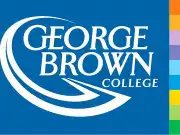Educational programs in Toronto for international students
- Higher Education in Toronto: Universities, Bachelor's and Master's
- Features of Higher Education in Toronto
- Main Universities in Toronto
- Overview of Bachelor's Programs in Toronto
- Master's and Doctoral Programs in Toronto
- Student Life in Toronto
- Job and Career Opportunities After Studying in Toronto
- Is It Worth Studying in Toronto?
- Frequently Asked Questions

Advanced Diploma - Business Administration (Accounting)
Humber College Institute of Technology & Advanced Learning, Toronto, CanadaAccounting theory, methods, and best practices are among the topics covered in Humber's Business Administration - Accounting advanced diploma program. Bookkeeping, auditing, taxation, business law, information systems, finance, and management are all covered in depth. You'll get hands-on expertise…

Bachelor of Technology (Hons) - Construction Management
George Brown College of Applied Arts and TechnologyThe Honours Bachelor of Technology (Construction Management) program integrates theory, research, fieldwork, and practical teaching. The curriculum blends construction engineering and technology with business and management concepts as applied to construction.
Students learn to handle building…

Diploma - Community Worker
George Brown College of Applied Arts and TechnologyThe Ontario College Diploma in Community Worker is a two-year, four-semester program that integrates local and global perspectives within a multi-level understanding of the historical, social, political, economic, and systemic ways in which social issues have developed and are experienced by communities.…

Bachelor (Hons) - Behaviour Analysis
George Brown College of Applied Arts and TechnologyThe four-year Honours Bachelor of Behaviour Analysis program at George Brown College delves deeply into the field of Applied Behaviour Analysis (ABA), which takes a scientific and methodical approach to shaping behavior for the better.
For over 15 years, we have served the Toronto area by…

Bachelor (Hons) - Digital Experience Design
George Brown College of Applied Arts and TechnologyThe four-year Honours Bachelor of Digital Experience Design Degree program prepares graduates to address societal and economic issues via the application of digital design.
Service design, user experience design, and interaction design are all subfields of digital experience design. It requires…

Bachelor of Commerce (Hons) - Culinary Management
George Brown College of Applied Arts and TechnologyThe Honours Bachelor of Commerce (Culinary Management) responds to the needs of the business world by providing students with the in-depth education expected of those pursuing a bachelor's degree in commerce with a culinary management concentration at the honors level.
This degree program…

Bachelor (Hons) - Food Studies
George Brown College of Applied Arts and TechnologyHospitality and culinary skills change the food industry. This continual change has underscored the need for a more holistic culinary education that allows students to study the food chain while learning a range of methods.
The Honours Bachelor of Food Studies degree prepares future food…

Bachelor of Business Administration (Hons) - Hospitality
George Brown College of Applied Arts and TechnologyAs the hotel sector evolves, businesses grow in size and complexity, necessitating the leadership of highly educated, analytical individuals. You can get a degree in hospitality management with honors from George Brown University.
To prepare you to become a professional, knowledgeable leader…

Certificate - Applied A.I. Solutions Development
George Brown College of Applied Arts and TechnologyOptimising corporate processes and automating decision-making in many white-collar positions, AI and data science will transform most industries as we progress deeper into this increasingly digital era. The Applied A.I. Solutions Development program will provide you the skills to equip established…

Certificate - Health Informatics
George Brown College of Applied Arts and TechnologyTo meet the growing and ever-changing demands of health care systems, experts from both the medical and IT fields collaborate in the Health Informatics Graduate Certificate Program. Health informatician/analysts-to-be, or current professionals who seek to advance their careers through formal study,…
Higher Education in Toronto: Universities, Bachelor's and Master's
Toronto is the largest city in Canada and one of the leading educational centers in North America. Thousands of international students come here every year to obtain prestigious education in business, engineering, IT, medicine, and humanities.
The city is home to Canada's leading universities, prestigious colleges, and business schools offering a wide range of bachelor's and master's programs.
Why students choose Toronto:
- International recognition of diplomas.
- Access to major corporations and startups.
- Innovative educational environment.
- Opportunities for internships and practical experience.
- Cultural diversity and a high level of safety.
Toronto consistently ranks among the best cities for studying due to its combination of high-quality education, developed infrastructure, and career growth prospects.
Features of Higher Education in Toronto
Toronto is not only Canada's financial capital but also a city that hosts many of the country's top universities and research centers.
Advantages of studying in Toronto:
- Top universities: The city is home to institutions that are included in global rankings for education quality and scientific research.
- Large offices of international companies: Over 18,000 enterprises, including Google, Amazon, IBM, Microsoft, provide opportunities for internships and future employment.
- High standard of living and safety: Although Toronto is a metropolis, it is considered safe for international students.
- International environment: More than 50% of the city's population are immigrants, ensuring a comfortable adaptation.
- Modern student infrastructure: Campuses are equipped with state-of-the-art laboratories, libraries, and recreation areas.
The cost of living in Toronto is higher than in smaller Canadian cities, but thanks to access to internships and the developed labor market, students can quickly recoup their investment in education.
Main Universities in Toronto
Top 3 Universities in Toronto by International Rankings:
| University Name | Main Fields of Study | Average Tuition Fee for International Students (CAD/year) | Comment |
|---|---|---|---|
| University of Toronto | Business, Engineering, Medicine, IT, Humanities | 35,000 – 66,000 | Top 25 globally (QS), leader in scientific research |
| York University | Business, Law, Humanities, Engineering | 29,000 – 42,000 | Ranked in the world's top 500, strong business faculty |
| Toronto Metropolitan University | Business, IT, Engineering, Communications | 28,000 – 38,000 | Recognized for practical training and innovation |
Other educational institutions in Toronto and nearby cities available to international students:
| University Name | Main Fields of Study | Average Tuition Fee for International Students (CAD/year) | Comment |
|---|---|---|---|
| Centennial College | Technology, Business, Healthcare | 16,000 – 23,000 | Popular among international students, Co-op programs available |
| George Brown College | Culinary Arts, Hospitality, IT, Design | 15,000 – 22,000 | Strong practical training, campuses in downtown Toronto |
| Seneca College | Business, Technology, Aviation, Design | 15,000 – 22,000 | One of Canada's largest colleges |
Overview of Bachelor's Programs in Toronto
Bachelor's programs in Toronto are designed to train specialists in demand both locally and internationally. They are distinguished by a practical approach, high teaching standards, and internship opportunities.
Popular Bachelor's Fields of Study:
- Business and Economics: Includes programs in finance, management, marketing. Universities cooperate with major corporations for internships and practical training.
- Engineering and IT: Programs prepare specialists in programming, engineering, artificial intelligence, and cybersecurity. Many campuses are equipped with modern laboratories.
- Medicine and Healthcare: High-quality training for medical professionals, including related fields such as pharmacy, nursing, and rehabilitation.
- Arts and Humanities: Programs for those wishing to develop creativity, analytical thinking, language skills, and cultural understanding.
Program Duration and Structure:
- Bachelor's degree lasts 3–4 years depending on the specialty.
- Includes theoretical courses, practical training, internships, and research projects.
Learning Formats:
- Full-time on-campus learning.
- Partially online (hybrid format for selected programs).
Tuition Fee for International Students:
The average tuition fee is from 28,000 to 66,000 CAD per year depending on the university and field of study.
Master's and Doctoral Programs in Toronto
Master's Programs
Master's programs in Toronto aim to deepen expertise and prepare students for career advancement or academic activities.
Types of Master's Programs:
- Research-based: involve project work and participation in scientific research.
- Course-based: focused on practical knowledge application in the industry.
Opportunities:
- Internships and Co-op programs for gaining work experience.
- Dual degree programs in partnership with foreign universities.
- Strong employment support after graduation.
Tuition Fee for International Students:
On average, from 20,000 to 55,000 CAD per year depending on the specialty and university.
PhD Programs
PhD programs are designed for those planning to engage in scientific research and teaching.
PhD Program Features:
- Work under the supervision of experienced scientists.
- Opportunities for publications and participation in international conferences.
- Involvement in world-class scientific projects.
Tuition Fee:
From 10,000 to 28,000 CAD per year for international students.
Student Life in Toronto
Toronto is a dynamic metropolis combining comfort, safety, and numerous opportunities for students.
Average Expenses According to Numbeo:
- Rent: 1,500 – 2,800 CAD per month.
- Groceries, transportation, personal expenses: 800 – 1,200 CAD per month.
- Total cost of living: from 2,300 to 4,000 CAD per month.
Crime Index: Toronto has a low crime rate for its size and is considered safe for international students.
Job and Career Opportunities After Studying in Toronto
Toronto is Canada's largest financial and technology center. It hosts offices of international companies, which simplifies job searching for graduates.
Popular Employment Sectors:
- IT and Technology.
- Financial Services and Banking.
- Marketing and Communications.
- Healthcare and Biotechnology.
- Engineering and Scientific Research.
Graduates can obtain a work permit and stay in Canada to start their careers.
Is It Worth Studying in Toronto?
Toronto offers a combination of high-quality education, career opportunities, and a multicultural environment. International students choose this city for prestigious diplomas, a developed economy, and comfortable living conditions.
Moreover, Canada offers attractive immigration programs for graduates. After completing studies, most students can obtain a Post-Graduation Work Permit (PGWP), allowing them to work legally in Canada for 1 to 3 years. This experience helps to subsequently apply for permanent residency (PR) and build a career in the country.
Frequently Asked Questions
- Which universities in Toronto are included in global rankings?
The University of Toronto consistently ranks among the top 25 universities in the world according to QS. York University and Toronto Metropolitan University are also represented in international rankings. - What is the cost of living for a student in Toronto?
The average cost of living is 2,300 to 4,000 CAD per month, including rent, food, and transportation. - Is it possible to find a job after studying in Toronto?
Yes, graduates can obtain a work permit and find employment with companies located in Toronto or other Canadian cities. - Which bachelor's programs are most in demand in Toronto?
Business, Engineering, IT, Medicine, and Humanities programs are especially popular. - Are there dual degree programs in Toronto?
Yes, several universities and colleges offer joint programs with foreign educational institutions. - What language is required for admission to Toronto universities?
Applicants must confirm their English language proficiency with exams such as IELTS, TOEFL, or Duolingo. - Are there internship opportunities as part of studying at Toronto universities?
Most programs include internships and Co-op formats to gain practical experience. - Is it difficult to obtain a student visa for studying in Toronto?
If all requirements are met and an official admission confirmation is available, the chances of obtaining a student visa are high. - Is Toronto safe for international students?
Toronto is considered a safe Canadian metropolis with a low crime rate compared to other global cities. - Why should you choose Toronto for education in Canada?
Toronto offers high-quality education, modern infrastructure, career development opportunities, and a comfortable multicultural environment.